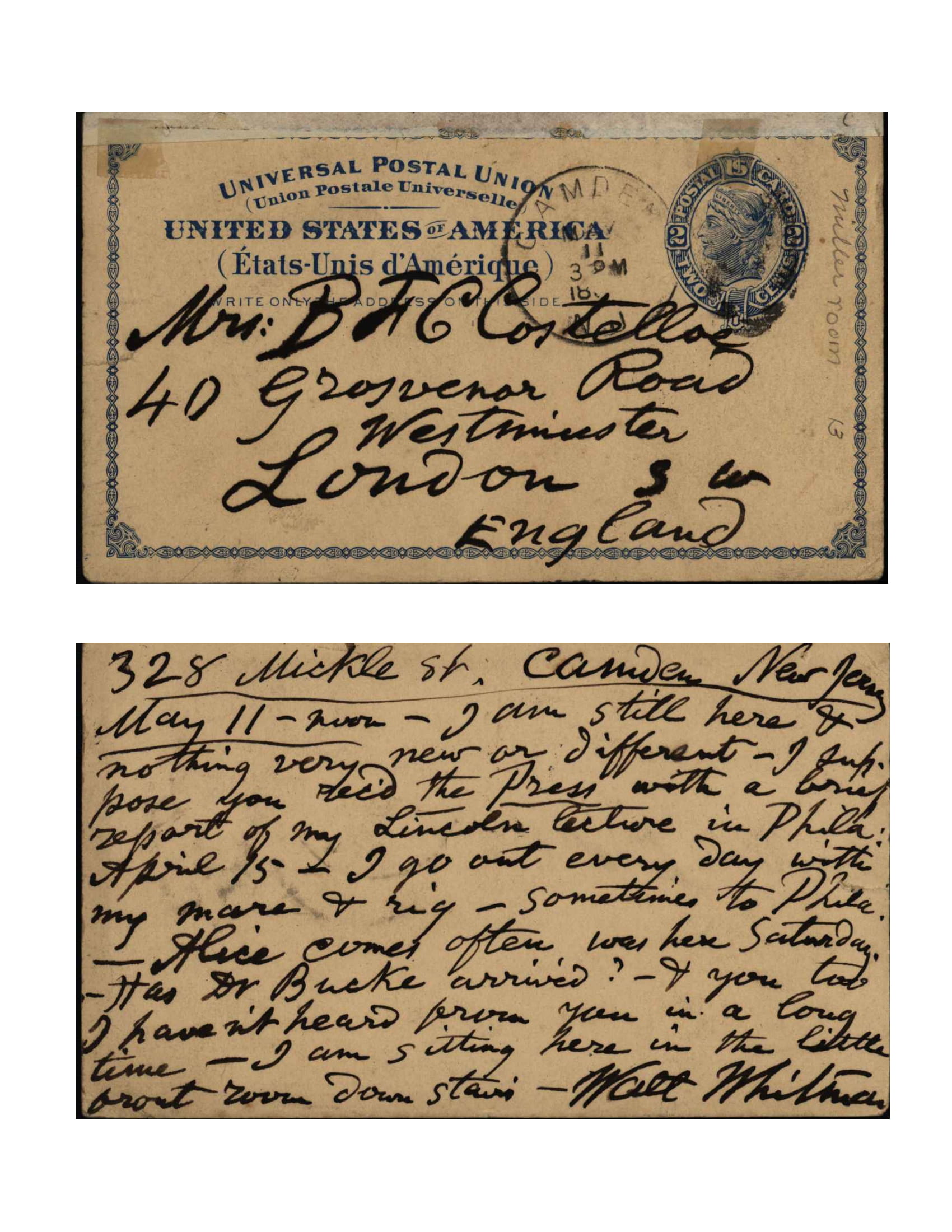Walt Whitman Collection
 Scope and Content
Scope and Content

Special Collections has a strong holding of works by and about Whitman, which grew organically through purchase and donation. The works included are primarily different editions of Leaves of Grass, as well as poems originally from Leaves of Grass but published separately. Included in these publications are facsimiles of original editions, including the 1839 and 1860-61 editions; small and artisan press editions of single poems; a multi-volume set of the complete writings, both poetry and prose, of Whitman; a small press publication of one of Whitman’s notebooks; and several works of biography, memoir, and anecdotal material about Whitman. Apart from books, the Special Collections holds several ephemeral pieces related to Whitman, such as a printed broadside advertising his works. Of especial note is one edition of Whitman’s poems which was previously owned by the English writer Edmund Gosse and by Oliver Brett, containing bookplates of both men. Tipped into this same edition is a postcard (left) which was handwritten by Whitman himself and addressed to his close friend, Mary Whitall Smith Costelloe. Several of the books in the collection were donated to Oberlin College by the prominent book collector and Whitman scholar Charles E. Feinberg. This collection shows, through the editions themselves and the commentary on them, Whitman’s creative process and the complexity of the burgeoning American literary scene.
Inventory | Biographical Sketch | Additional Resources
Inventory
OBIS records for works by and about Whitman in Special Collections
Biographical Sketch
Walt Whitman (1819-1892) was apprenticed to a Brooklyn printer at the age of eleven, where he learned the art of printing and was introduced to journalism. Throughout Whitman's lifetime, he worked for various news publications, reporting on such hot-button issues as the Free Soil Movement (1848-1854) and the American Civil War (1861-1865). While working as a journalist, he composed several short poems; however, his poetic career can be said to have started in earnest with the composition of Leaves of Grass (first edition 1855). With this piece, Whitman rejected the structures of traditional poetry, favoring instead a rhythm which he himself devised to mimic common American speech patterns. Although contemporary critics and readers were sceptical of this revolutionary poetical style, Leaves of Grass went into six editions, and included one of his most popular poems, “Song of Myself”. Aside from his work as a poet, Whitman is important as a literary artist in a broader sense. Whitman wrote, composed, printed, and published Leaves of Grass himself, blurring the lines between author, printer, and publisher. He also undermined conventional ideas of print editions, as each edition of Leaves of Grass was edited, amended, and added onto, in ways which were obvious, intentional, and extensive. In this way, the text of the poem and its materiality meld into a single entity, for which Whitman is responsible.
Additional Resources
Loving, Jerome. "Whitman, Walt (1819-1892), poet." American National Biography. February, 2000. Oxford University Press.
“Walt Whitman, 1819-1892.” Poetry Foundation.
The Walt Whitman Archive, hosted by the University of Nebraska-Lincoln.
compiled by Rebecca Sparagowski, 12/2018